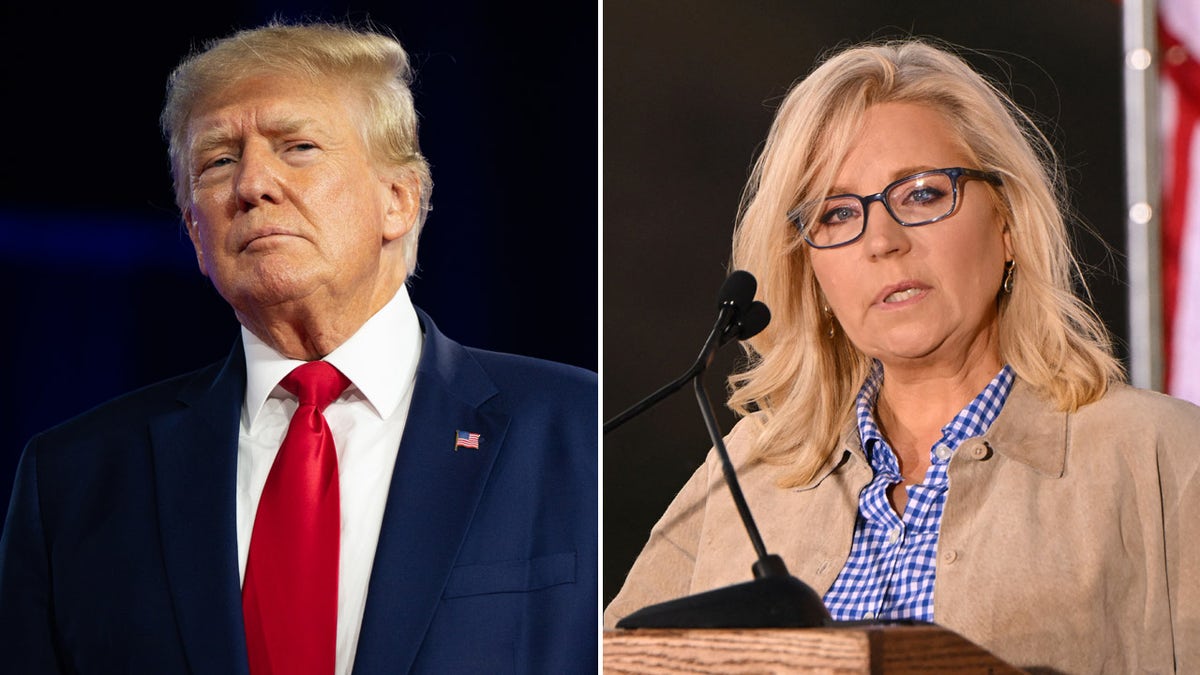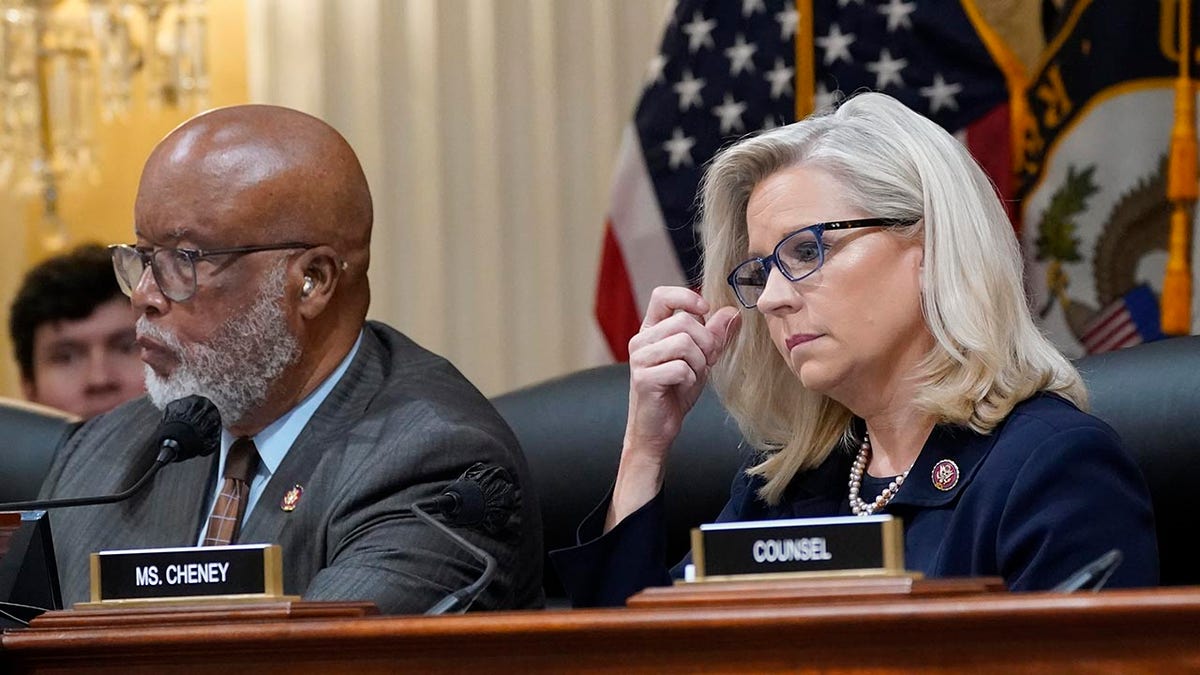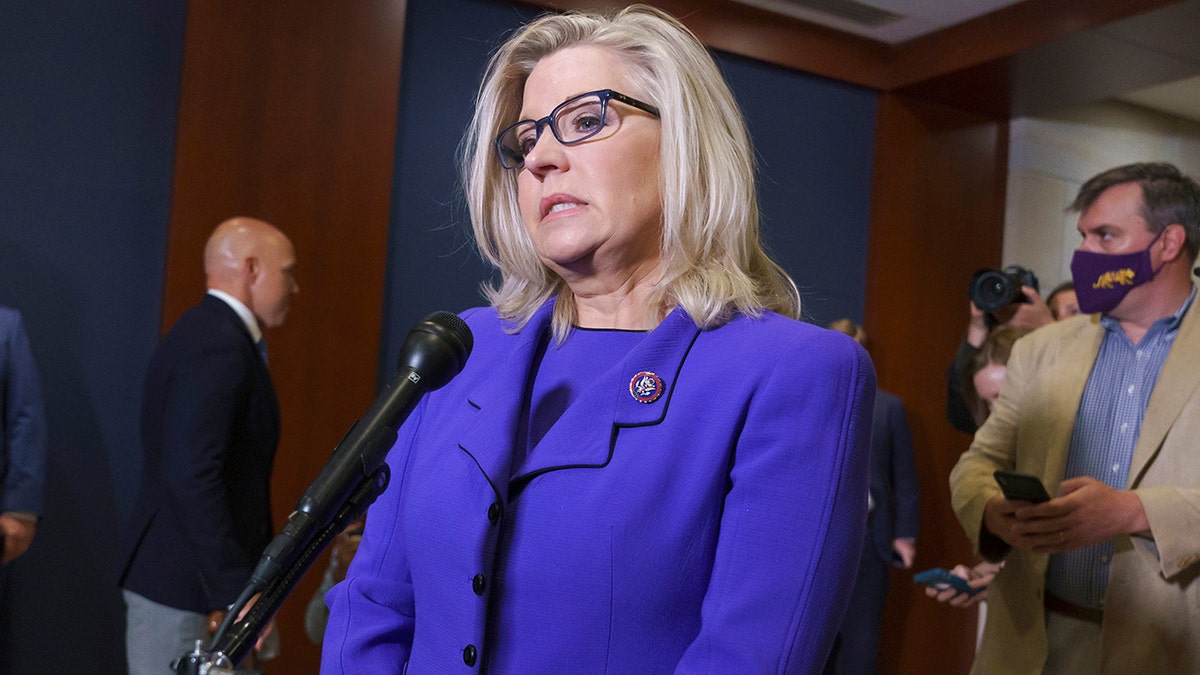Katie Pavlich: There is no chance Liz Cheney will be president
Fox News contributor Katie Pavlich explains the aftermath of Tuesday's Wyoming Republican primary and the effects it will have on Liz Cheney's political future
Rep. Liz Cheney's primary defeat in Wyoming marks a milestone for the GOP: Former President Donald Trump has successfully purged eight of the 10 House Republicans who voted to impeach him.
The question on many strategists' minds is whether the GOP has a future that doesn't include backing, or at least tolerating, Trump's leadership. Cheney, a three-term congresswoman who turned on Trump after backing him during most of his presidency, has made it her mission to try to keep him out of the Republican Party, and out of politics all together.
"We must be very clear-eyed about the threat we face and about what is required to defeat it. I have said since Jan. 6 that I will do whatever it takes to ensure Donald Trump is never again anywhere near the Oval Office. And I mean it," Cheney said Wednesday, invoking Abraham Lincoln, the first Republican president, as inspiration for her continued work to save the U.S. from Trump. And she's launching an anti-Trump organization called "The Great Task," a phrase from Lincoln's Gettysburg address, targeting him.
But what the midterm election primary cycle appears to indicate so far is that the GOP has little room for those who are openly anti-Trump. Of the 10 House members who voted to impeach him on charges of inciting the Jan. 6, 2021, storming of the Capitol, only two are still in the running to keep their seats. Four have retired, and four have lost their support to Trump-backed candidates.

Former President Donald Trump endorsed Harriet Hageman, Rep. Liz Cheney's challenger in the GOP primary race to represent Wyoming's at-large Congressional District. (Brandon Bell, Patrick T. Fallon/AFP via Getty Images)
Cheney's decision to focus her political career on taking down Trump does not appear to resonate with a majority of the GOP, but that doesn't mean anti-Trump sentiment doesn't exist in the party.
If there is room for "Trump-skeptic" members of the Republican Party, it will depend on how much they attack the former president, according to longtime GOP political strategist Ellen Carmichael.
"Are they simply attacking the former president, and by extension, his supporters, or are they offering ideas of their own? Are they promoting results-oriented solutions that address the concerns of the American people, or are they dwelling on the past?" Carmichael said.
It's not a new strategy — many Republicans have been able to keep some distance from Trump but not attract his wrath, either, Carmichael said.
"There’s a way to embrace the policies that worked during the Trump administration without getting bogged down in the divisive intra-party squabbles that have created real resentment and frustration throughout the party at a time when Republicans should be scoring easy victories up and down the ballot," she said.

Republican congresswoman Liz Cheney lost support from many Republicans for her role in the House Jan. 6 Select Committee investigation. (AP Photo/J. Scott Applewhite)
REP. LIZ CHENEY COMPARES HERSELF TO ABRAHAM LINCOLN FOLLOWING RESOUNDING DEFEAT IN WYOMING PRIMARY
Trump on Tuesday night heralded Cheney's loss as a repudiation of the Jan. 6 committee, which over the past 18 months has worked to tie him to the attack on the Capitol.
"I assume that with the very big Liz Cheney loss, far bigger than had ever been anticipated, the January 6th Committee of political Hacks and Thugs will quickly begin the beautiful process of DISSOLUTION? This was a referendum on the never ending Witch Hunt. The people have spoken!" Trump said in a statement on TRUTH Social.
The tension between being skeptical of Trump or backing him outright is still playing out across the party.
"Privately, the overwhelming majority of [Republican politicians] are Trump skeptics — if not a step further than that," said Doug Heye, former RNC communications director, in an interview with Fox News Digital. "Publicly though, they pick and choose their battles. I think what we've seen in the party is that you can be critical of Trump on policy," so long as the politician didn't go against the person or brand of Trump.
One of the two pro-impeachment Republicans to survive this cycle, Rep. David Valadao, R-Calif., was not a vocal Trump critic, and avoided Trump endorsing his challenger, Chris Mathys, who attempted to tie the incumbent to Cheney and Rep. Adam Kinzinger, R-Ill.

Rep. Liz Cheney, R-Wyo., speaks to reporters after House Republicans voted to oust her from her leadership post as chair of the House Republican Conference, at the Capitol in Washington on May 12, 2021. (AP Photo/J. Scott Applewhite)
"I kept my head down. I focused on running my district," Valadao told Politico after his primary win. The other Republican who voted to impeach, yet survived his primary, is Rep. Dan Newhouse, R-Wash. He said something similar to Valadao.
"Newhouse and Valadao, what did they run on? They were running on their district, on specific issues in their district. Valadao is talking about agriculture all day, every day," Heye said.
Cheney, on the other hand, "is the only one who took dead aim at [Trump], and kept it there, and said she's going to keep it there," Heye said.
The constant analysis of how powerful the Trump endorsement can be overstated, Heye cautioned. States have different election laws — Washington and California have top-two, open primary systems, for instance, not a party-specific primary. But Rep. Jaime Herrera Beutler, R-Wash., lost her race narrowly to a Trump-backed candidate in the same state as Newhouse. And if Pennsylvania had different election procedures, the Senate race could have led to a runoff, where Trump-endorsed candidate Mehmet Oz might have had a harder time.

Former President Donald Trump speaks at a rally in Casper, Wyoming, on May 28, 2022. (Chet Strange/Getty Images)
"If we cast these things as all about Trump, then they defy Trump," Heye said.
CLICK HERE TO GET THE FOX NEWS APP
And further, Cheney was the most anti-Trump Republican to face voters this year, and she was running in the state Trump won by the largest margin in 2020. Her supporters on Tuesday evening lauded her courage for taking a stand in such headwinds, but whether she can inspire any significant portion of the GOP — as she continues pushing her anti-Trump message and considers running for president in 2024 — is unclear.
"There will be some. What that size is we don't know — it's clearly not 51% of the party right now," Heye said.















































